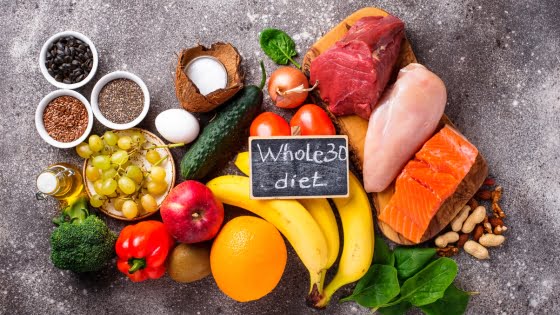With countless diets being promoted for weight loss, health benefits, and lifestyle changes, it can be overwhelming to choose the right one. Each diet has its own set of principles, benefits, and potential drawbacks. Understanding the different types of diets and their effects on health can help you make an informed decision that aligns with your personal goals and health needs. This article explores various popular diets, their principles, and their potential impacts on health.
The Mediterranean Diet
The Mediterranean diet emphasises fruits, vegetables, whole grains, nuts, seeds, and olive oil. It includes moderate consumption of fish and poultry, with a limited intake of red meat and sweets. This diet also encourages physical activity and social meals. Health benefits of the Mediterranean diet include promoting heart health by reducing risk factors for cardiovascular disease, aiding in weight management, and reducing the risk of type 2 diabetes. It is rich in antioxidants, which can reduce inflammation and improve overall health.
The Ketogenic Diet

The ketogenic diet is high in fats, moderate in proteins, and very low in carbohydrates. It aims to put the body into a state of ketosis, where it burns fat for fuel instead of carbohydrates. This diet can lead to rapid weight loss and improved insulin sensitivity, and it may help manage epilepsy and certain neurological conditions. However, long-term effects are still being studied; potential risks include nutrient deficiencies and increased risk of heart disease if not properly managed.
The Paleo Diet
The paleo diet focuses on foods that were available to early humans, such as seeds, nuts, vegetables, fruits, and lean meats. Meanwhile, it excludes dairy, legumes, and processed foods. It can improve blood sugar control and reduce inflammation, supporting weight loss and muscle growth. However, it may lack essential nutrients found in grains and dairy, requiring careful planning to avoid deficiencies.
The Vegan Diet
The vegan diet excludes animal products, such as eggs, dairy, and meat, and focuses on plant-based foods. It is associated with a lower risk of heart disease, hypertension, type 2 diabetes, and certain cancers. This diet promotes weight loss and can improve digestive health, but it requires careful planning to ensure adequate intake of protein, vitamin B12, iron, and calcium.
The Vegetarian Diet
The vegetarian diet excludes meat and fish but includes dairy and eggs (lacto-ovo vegetarian). Variations include lacto-vegetarian (no eggs) and ovo-vegetarian (no dairy). This diet can reduce the risk of chronic diseases such as heart disease, diabetes, and cancer, supporting weight management and improving gut health. Like the vegan diet, it requires attention to nutrient intake to avoid deficiencies.
The Atkins Diet
The Atkins diet is a low-carbohydrate diet with four phases, starting with very low-carb intake and gradually increasing. It focuses on high-protein and high-fat foods. This diet can lead to significant weight loss and improved blood sugar control, reducing appetite and promoting long-term weight maintenance. However, potential risks include increased cholesterol levels and nutrient deficiencies if not balanced properly.
The DASH Diet
The DASH diet focuses on low-fat dairy, lean proteins, whole grains, vegetables, and fruits. It also minimises the intake of saturated fats, sugars, and sodium. Proven to reduce blood pressure and improve heart health, it can aid in weight loss and reduce the risk of type 2 diabetes. This diet is nutrient-dense and well-balanced, making it sustainable long-term.
The Flexitarian Diet
The flexitarian diet is primarily plant-based but allows occasional meat and animal products. It focuses on incorporating more plant-based foods into the diet. This diet can improve overall health by reducing the risk of chronic diseases, supporting weight loss, and improving metabolic health. It is flexible and easier to maintain compared to stricter diets.
The Whole30 Diet

The Whole30 diet is a 30-day elimination diet that excludes sugar, alcohol, grains, legumes, dairy, and certain additives, focusing on whole foods such as meat, seafood, eggs, vegetables, fruits, and nuts. It can reset eating habits and identify food sensitivities, potentially leading to weight loss and improved energy levels. However, the strict rules can be challenging to maintain, and the reintroduction phase is crucial for long-term success.
The Zone Diet
The Zone diet balances macronutrients in a 40% carbs, 30% protein, and 30% fat ratio. It aims to control insulin levels and reduce inflammation. This diet can improve blood sugar control and support weight loss, encouraging balanced eating and portion control. However, it requires careful planning to maintain the macronutrient ratio.
Understanding the different types of diets and their effects on health is crucial for making informed dietary choices. Each diet offers unique benefits and potential drawbacks, so it’s important to choose one that aligns with your health goals, lifestyle, and nutritional needs. Whether you’re looking to lose weight, improve heart health, or manage a chronic condition, there’s a diet that can help you achieve your objectives. Always consult with a healthcare professional before making significant changes to your diet.
Alkaline ionised water is particularly beneficial when following various diets due to its superior hydration capabilities and pH-balancing properties. When adhering to a high-protein diet, like the Keto or Atkins diet, alkaline ionised water can help neutralise the increased acidity in the body, promoting better metabolic function and reducing the risk of acid-related issues. For plant-based diets, such as Vegan or Vegetarian, alkaline water can enhance nutrient absorption, ensuring you get the most out of your food. Additionally, the minerals found in alkaline ionised water, such as calcium and magnesium, support overall health and can complement any dietary regime by maintaining optimal hydration and aiding in detoxification processes.
Contact us to learn more about how alkaline ionised water can support your dietary and health goals.
If you found this article helpful, why not explore our other blogs for additional tips and advice on health and wellness? We’re committed to providing valuable resources to help you live your best life. Check out our website for more informative articles and resources, read on “The Science of Longevity: How Your Diet Can Shape a Longer, Healthier Life“.
Frequently Asked Questions (FAQs)
How can I ensure I’m getting enough nutrients on a restrictive diet?
It’s essential to plan your meals carefully and consider supplementation if necessary. Consulting with a dietitian can help ensure you meet all your nutritional needs while following a restrictive diet.
What are some common side effects when starting a new diet?
Common side effects can include headaches, fatigue, digestive issues, and mood swings. These are often temporary as your body adjusts to the new diet, but persistent issues should be discussed with a healthcare professional.
How important is hydration when following a diet?
Hydration is crucial for overall health and can significantly impact the success of your diet. Proper hydration aids digestion, and nutrient absorption, and can help manage hunger and cravings. Drinking water, especially alkaline ionised water, can enhance these benefits.
#Diets #HealthyEating #WeightLoss #MediterraneanDiet #KetoDiet #PaleoDiet #VeganDiet #VegetarianDiet #AtkinsDiet #DASHDiet #FlexitarianDiet #Whole30Diet #ZoneDiet
Recommended books for further reading:
- Perfect Health
- How to live a healthy life
- The Fast 800: How to combine rapid weight loss and intermittent fasting for long-term health
- Deliciously Ella Every Day: Simple recipes and fantastic food for a healthy way of life
- Eat Yourself Healthy: An easy-to-digest guide to health and happiness from the inside out
Recommended Products:



I love how you covered the Mediterranean diet—so many benefits for heart health! ❤️
I appreciate the balance you’ve presented. It’s refreshing to see an article that highlights both the benefits and potential drawbacks of each diet